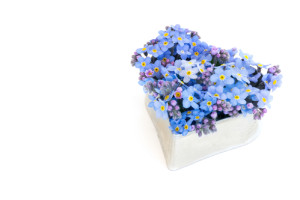 Do you feel bad for having hurt someone at some time? Welcome to the club.
Do you feel bad for having hurt someone at some time? Welcome to the club.
Self-Forgiveness may seem like an unusual choice for a blog about Generosity, but forgiving yourself is all about generosity. When you are generous to yourself, you love yourself enough to understand that even if you aren’t perfect, even if you’ve done bad things, you are still a good person. And it’s about generosity, because being generous to others is one of the best ways to heal your pain and restore your belief that you are worthy of love.
Here are the 3 steps to forgiving yourself.
Step 1. Acknowledge you’ve done something wrong.
After you’ve admitted it to yourself, you may want to admit it to a group of supportive people such as a church group (or other spiritual gathering) or a recovery meeting (Alcoholics Anonymous, Alanon) or even just a very supportive friend. Other people can give you much needed understanding and perspective.
Then, if you think that apologizing to the person you’ve harmed would help them heal, acknowledge and apologize sincerely to them. If it’s not possible or it’s not a good idea, find a meaningful way to express your remorse for the pain you’ve caused.
Step 2. Make changes.
You won’t be able to forgive yourself if you keeping making the same mistake, so you may need to change your life (such as leaving an abusive relationship) or you may need to change yourself (quitting drinking or learning to handle stress or express emotion more appropriately). Often, you’ll need to do a little bit of both.
Step 3. Give.
If possible, give unconditionally– without expectation of return– to the person you’ve hurt. Without expectation of return is critical, because the person who has been hurt by your actions will be checking to see if you really mean it. They may not trust you. They may be waiting for you to go back to your old ways. And that’s ok. You can’t control how they will react. But you can give. And if your actions are consistently generous, come from love, and with respect, you are doing your part.
If it’s not be possible to give to the person you’ve hurt, give to others. Friends, family, strangers could all use some kind of help. As you help, you create new experiences that remind you that even though you may have done some bad things you are a good person. Get involved with friends and support groups who can reflect back to you the good they see in you.
The Self Forgiveness Practice
Self-forgiveness is not easy, and it doesn’t happen over night. Nor should you expect to reach a magical place where you never feel bad again. But show yourself a little love, be a little generous to others, and practice Self-Forgiveness.
- Who have you harmed in your past?
- How did you harm them and how badly do you feel about?
- Write an apology.
- Do you think acknowledging and apologizing for this harm directly to them would help you or them heal? Do you need to enlist a support group or good friend who can listen non-judgmentally to your guilt?
- What were the circumstances that led to this transgression?
- Will those same circumstances happen again?
- If so, how do you need to change your life, so that you won’t cause this kind of harm again?
- What can you give to the person you’ve harmed, to others, or to the world?
Have you struggled with self-forgiveness? Can you share some suggestions about what has worked for you? I’d love to hear about it.